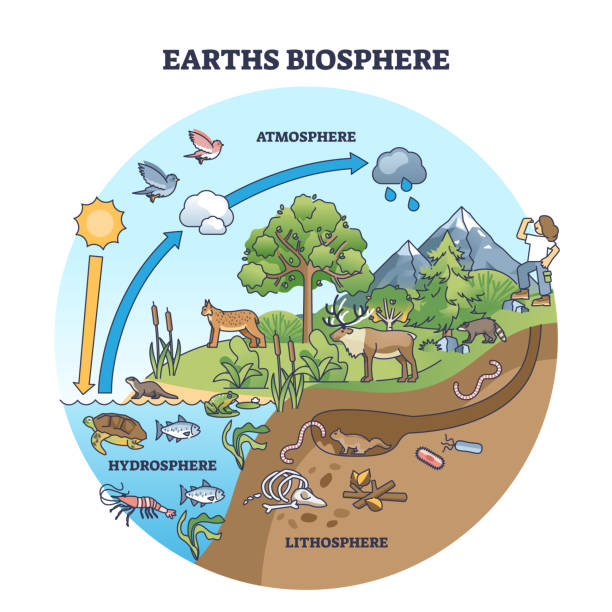
Ecosystem gives meaning of sentence “balance of environment.” If we break this word into two, “Eco” which means biological nature in environment and “system” a technical word means working together or interconnected.
Definition of Ecosystem – An ecosystem is a functional unit of nature where living (biotic) and non living (abiotic) components interacts with each other to form stable system or environment.The ecosystem is relatively modern in ecological thinking.
But who coined the term ecosystem? The partial credit goes to British ecologist Arthur Roy Clapham for discovery and explanation, but was popularized and more precisely defined by Sir Arthur George Tansley in 1935. As Tansley felt previous terms weren’t capturing crucial interconnectedness, he provided a more holistic approach to ecology, enhanced the importance of considering both the living organisms and their physical environment as a single, interacting system.

How to explain ecosystem? To explain ecosystem, one should know about this three characters of ecosystem-
- Energy Flow: Starting with sunlight, light energy create nutrition in plant and other living organisms, which then moves through the ecosystem.
- Nutrient Cycling: Essential elements like carbon, nitrogen, and water are constantly recycled within the ecosystem, moving between living and non-living components.
- Interactions: Organisms compete, cooperate, and depend on each other in various ways, creating a complex web of relationships.

Earth biosphere with atmosphere, hydrosphere and lithosphere outline diagram. Labeled educational scheme with nature water cycle and biological precipitation cycle in ecosystem vector illustration.
In simple terms, an ecosystem is a community of living organisms (plants, animals, microorganisms) interacting with each other and with their non-living environment (air, water, soil, climate) in a specific area. Think of it as a dynamic and interconnected web where everything plays a role. To truly grasp the meaning of ecosystem, we need to understand their interaction. It’s not just about the individual components, but how they influence one another.
Ecosystems can vary dramatically in size, from a small pond to a vast ocean. They can be natural or even human-modified, like agricultural fields. Understanding ecosystems is crucial because they provide us with essential services like clean air and water, food, and climate regulation.

Leave a Reply